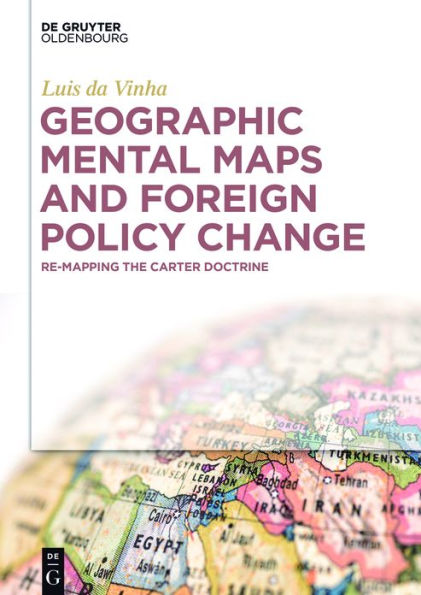Home
Goldwater v. Carter: Foreign Policy, China, and the Resurgence of Executive Branch Primacy
Loading Inventory...
Barnes and Noble
Goldwater v. Carter: Foreign Policy, China, and the Resurgence of Executive Branch Primacy
Current price: $69.99


Barnes and Noble
Goldwater v. Carter: Foreign Policy, China, and the Resurgence of Executive Branch Primacy
Current price: $69.99
Loading Inventory...
Size: Hardcover
*Product Information may vary - to confirm product availability, pricing, and additional information please contact Barnes and Noble
Goldwater v. Carter
tells the story of the Supreme Court ruling that upheld President James Earl Carter’s unilateral decision to nullify the Sino-American Mutual Defense Treaty with the Republic of China (Taiwan), thereby enabling the United States to establish relations with the People’s Republic of China. Senator Barry Goldwater and other members of Congress brought a lawsuit against Carter, arguing that the president needed Senate approval to take this action. President Carter’s actions in recognizing the Peoples’ Republic of China were both a continuation of a process begun by President Richard Nixon, and a milestone in foreign policy that survived legal and political intervention. In their decision, the Supreme Court placed the removal of the United States from treaties squarely in the political, rather than the constitutional, arena.
Goldwater contended that if Carter could withdraw from the treaty with Taiwan, then another president could theoretically withdraw from NATO and thereby endanger the global political order. Ironically, years later President Donald Trump, who stood in the mold of Goldwater’s brand of conservatism, posed this very threat.
Joshua Kastenberg places the case of
in the larger context of executive power. While presidential power had increased in the wake of FDR’s New Deal, Congress curbed this expansion during the Vietnam conflict, placing restrictions on the presidency in areas of foreign policy and national security that had not been seen since the defeat of the League of Nations in the Senate in 1919. The Court’s decision in favor of Carter, however, marked a return to the growth of the “imperial presidency,” which has only continued to expand.
tells the story of the Supreme Court ruling that upheld President James Earl Carter’s unilateral decision to nullify the Sino-American Mutual Defense Treaty with the Republic of China (Taiwan), thereby enabling the United States to establish relations with the People’s Republic of China. Senator Barry Goldwater and other members of Congress brought a lawsuit against Carter, arguing that the president needed Senate approval to take this action. President Carter’s actions in recognizing the Peoples’ Republic of China were both a continuation of a process begun by President Richard Nixon, and a milestone in foreign policy that survived legal and political intervention. In their decision, the Supreme Court placed the removal of the United States from treaties squarely in the political, rather than the constitutional, arena.
Goldwater contended that if Carter could withdraw from the treaty with Taiwan, then another president could theoretically withdraw from NATO and thereby endanger the global political order. Ironically, years later President Donald Trump, who stood in the mold of Goldwater’s brand of conservatism, posed this very threat.
Joshua Kastenberg places the case of
in the larger context of executive power. While presidential power had increased in the wake of FDR’s New Deal, Congress curbed this expansion during the Vietnam conflict, placing restrictions on the presidency in areas of foreign policy and national security that had not been seen since the defeat of the League of Nations in the Senate in 1919. The Court’s decision in favor of Carter, however, marked a return to the growth of the “imperial presidency,” which has only continued to expand.


















